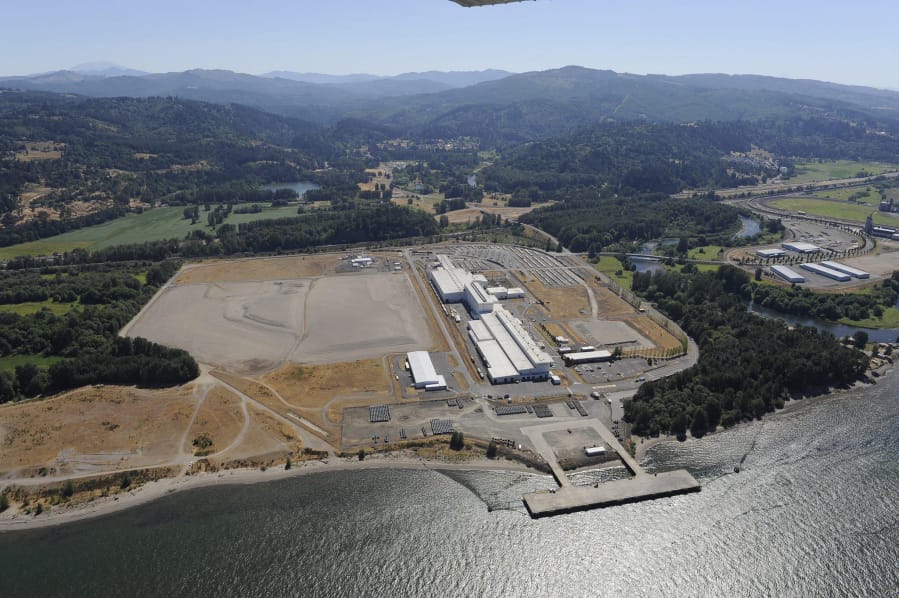LONGVIEW — The state Department of Ecology Tuesday denied a key permit for the $2.3 billion proposed Kalama methanol plant, citing a “significant increase in greenhouse gas emissions and inconsistencies with the Shoreline Management Act,” as principal reasons.
In December, Ecology released the final analysis of the proposed plant’s greenhouse gas emissions. The study found while the plant could result in less global emissions, levels would still be “significant” even after mitigation efforts.
Ecology began the second supplemental greenhouse gas study about a year ago after it determined the analysis provided by Northwest Innovation Works and the Port of Kalama had been inadequate.
The county is the review agency for the methanol project and has twice approved a shoreline permit for the project.
Northwest Innovation Works wants to build the $2.3 billion plant on land leased from the Port of Kalama. The proposed plant would convert natural gas into methanol for use in plastics manufacturing in China and would employ about 200 people, according to the company.
According to the new study, the proposed plant could reduce global greenhouse gas emissions by 5.5 to 6 million metric tons per year, compared to the 10 million metric tons concluded by the earlier environmental study by the Port of Kalama and Cowlitz County.
The plant would produce about 1 million metric tons of emissions in-state, making it one of Washington’s top 10 emitters, according to the study.
The final study confirmed the draft finding that NWIW’s plan to mitigate all in-state emissions with environmentally friendly projects is feasible but emissions would still be deemed significant.
The project, first proposed in 2014, has generated considerable opposition from environmental groups, including two lawsuits.
Local elected officials and economic development proponents have called construction of the methanol plant along the Columbia River critical to the economic recovery of the region.
Other permits would be required for the project to move forward, including two federal permits vacated in November.
A federal court in November vacated the federal Clean Water Act permits the U.S. Army Corps of Engineers approved in April 2019, sending the project back to the Corps for review.
It’s unclear how long it may take the Corps to complete an environmental impact statement for the project, but Ecology’s greenhouse gas study took about a year.



